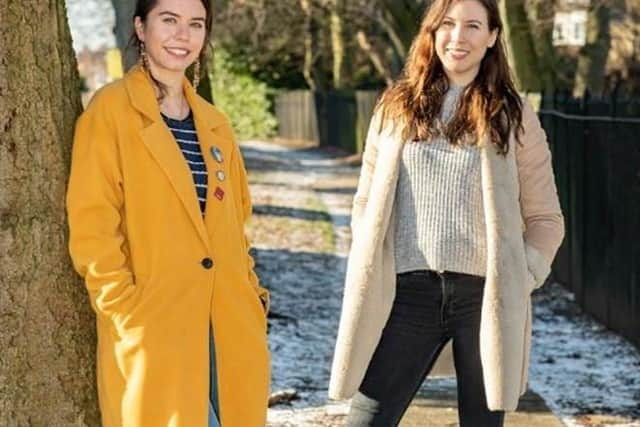Leeds women talk about eating disorder experiences and support available as calls to helpline increase by 173 per cent in a year
and live on Freeview channel 276
The statistics from Beat, the UK's eating disorder charity, come ahead of Eating Disorders Awareness Week, which runs from March 1 to 7 and where the charity steps up its campaign to create a future where people experiencing binge eating disorder are met with understanding and compassion.
Here in Leeds, Ellie Maycock and Cornell Nolana-Nova, have beaten their own eating disorders and are now employed by charity organisation, Inspire North to work with Connect: The West Yorkshire Adult Eating Disorder Service, through which they provide peer support to others coping with and managing eating disorders.
Advertisement
Hide AdAdvertisement
Hide AdLike Beat, which compared January 2021 to February 2020 for helpline demand, they too are seeing as many as 400 people interacting with their support sessions which they started hosting via Instagram when lockdown restrictions were imposed in March 2020.


Ms Nolana-Nova said: "Before we would do one to ones, travelling to visit people at home or their own environment, that would involve working with service users for emotional support. We would also run social groups, arts and crafts to give a bit of a break away from eating disorders.
"We have contributed to meetings and service development, speaking with doctors about identifying eating disorders because the questions that GPs ask are not always helpful in detecting something."
However, the way they worked had to change last March and the instagram sessions are held live twice a day at breakfast and evening. They can also be watched back with anything between 50 and 400 people watching the sessions.
Advertisement
Hide AdAdvertisement
Hide AdThey believe this method of interaction is filling a gap because the support sessions don't require a referral or interaction and people can drop in and out of them as and when they feel they need to.
Ms Maycock added: "It is two-fold. People can have a conversation and ask questions or watch it back and we provide different resources that people can look at."
It is something they say they both would have benefited from when they themselves were battling eating disorders.
Ms Nolana-Nova said: "I didn't even know something was wrong - that is the nature of eating disorders, it can very much trick you. I had no idea it was a coping strategy to deal with trauma. If I had seen something like this it would have been so helpful and offered me that platform where I could be curious, watch somebody talk open and freely and, if I wanted to, I could engage.
Advertisement
Hide AdAdvertisement
Hide Ad"That would have been a good way to think I do have some issues and started to talk about how to address it,"
Ms Maycock had anorexia in her late teens which developed into bulimia and says it was looking beyond her relationship with food that helped her start her recovery journey.
She said: "In my teens I went on a real journey and had to look deeper at what was going on with me. From that point I was in recovery. I carried around the thought that I was broken and the best I could do was manage it. Those thoughts are no longer part of the reality."
Both women also want to stress to people currently battling with eating disorders that full recovery is possible.
Advertisement
Hide AdAdvertisement
Hide AdThey added: "Recovery is a philosophical journey. What life do you want? What road do you go down? It goes hand in hand (with recovery). It is something we are really passionate about. You can have services or people around you but it is your own journey."
Support the YEP and become a subscriber today. Enjoy unlimited access to local news and the latest on Leeds United, With a digital subscription, you see fewer ads, enjoy faster load times, and get access to exclusive newsletters and content. Click here to subscribe